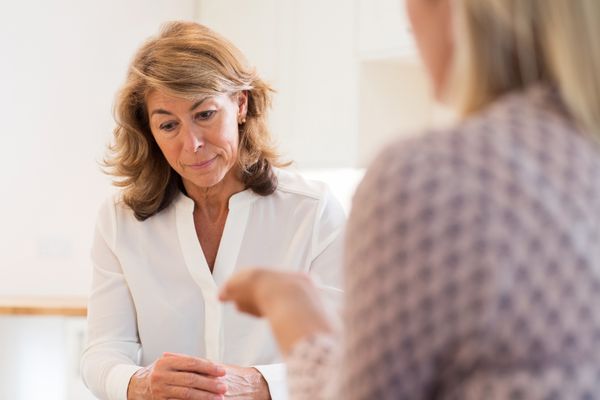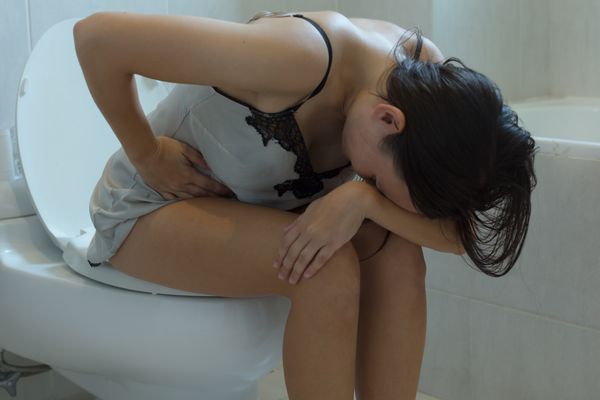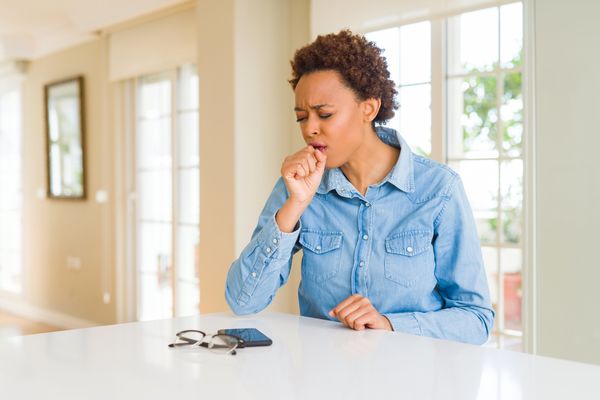By Sherrie Palm, for Women's Health Foundation
By the time we reach our 50s, we pretty much assume we have a handle on the type of health issues we may experience as women. The drill is all too familiar: We go for routine pap smears and pelvic exams and, for heaven's sake, don't forget to get your boobs checked. Birth control concerns shift to hormone replacement evaluations.
Once we get to the point that our perimenopausal and menopausal concerns are addressed and balanced, we pretty much feel that the primary female health balance issues are addressed. But for a shockingly large number of women, there is another extremely common health matter that lingers undetected, misdiagnosed or ignored because the symptoms it displays are simply too embarrassing to deal with.
Is anyone talking openly about the symptoms of pelvic organ prolapse (POP)?
Pelvic organ prolapse is an extremely common female health issue that remains in the closet even though it has been "on record" since Egyptian times. Hippocrates wrote about inserting a pomegranate into the vagina as a treatment for POP, a type of pessary if you will. (I know, I know, pretty creepy!)
Pessaries have been around since the 1400s. They are a type of internal support device for the pelvic organs. Twenty-eight million women in the United States alone have pelvic floor disorders; millions of women in countries around the globe have POP.
Half of all women over 50 will experience one or more types of POP, and the number of cases is increasing. Up to 300,000 POP surgeries are performed annually in the U.S. Pelvic organ prolapse truly is a women's health pandemic.
Yet, this condition remains tucked away and shrouded in mystery. Women typically first become familiar with POP when they are diagnosed. For the most part, women are not comfortable discussing POP because some of its symptoms are simply too embarrassing to discuss. As women, we are comfortable discussing nearly every aspect of our lives with our friends and family, but somehow POP has fallen between the cracks.
There are five types of POP: cystocele, rectocele, enterocele, vaginal vault prolapse and uterine prolapse. Within these types are four levels of severity: grade 1 is the least severe and grade 4 is the most severe. Because of the many combinations of POP types and severity, what each woman experiences with POP will vary.
With the statistics for frequency of POP being as high as they are, it's hard to imagine that this health issue is not common knowledge among women. This leads back to the "in the closet" issues. Urinary leakage is one of the most common symptoms of POP, but as women we speak quite freely about urinary leakage. What we aren't talking about is what happens above and beyond urinary leakage.
Thirty percent of women with urinary incontinence also suffer from a loss of bowel control. One in three women suffers sphincter damage during childbirth. Although there are many causes of POP, and often it is a combination of causes that creates POP issues, childbirth is the most common cause. It is followed by menopause; estrogen loss has a specific impact on muscle tissue strength, density and elasticity.
As women, we deal with the issues of urinary leakage. (Learn more Tips to Stop Urine Leaks.) We are not comfortable, however, dealing with fecal leakage. The emotional baggage that comes from this issue far outweighs the physical. For the most part, women are exposed to poop in all of its forms: baby diaper changes, pet clean-up duties, manure for gardening. But when we discover that we have to deal with poop on us, it throws us for a loop.
Our society is very poop-phobic in general, and having fecal leakage issues flies in the face of our femininity, makes us feel less attractive, less self-confident. The impact it has on our self-image and sexuality is huge.
For some women, fecal leakage may be a once-in-a-blue-moon concern. For others, it occurs more regularly. Realistically, it doesn't matter if it happens frequently or infrequently because having to always wonder when it will occur makes it difficult for women to feel comfortable leaving the security of their homes.
Many women cut back on socializing or eliminate it altogether, fearful that there may be an issue while in public. No amount of tidying up in a ladies' room can replace the comfort of dealing with this matter in your own home. For many women, fecal or urinary leakage is so humiliating that they can't even bring themselves to reveal it to their health care professionals, or, if they do, they minimize the severity or reveal only urinary leakage and not fecal.
There is a much bigger effect from fecal leakage when we consider the impact it has on our sexuality. Urinary and fecal leakage can create so much anxiety in a woman that she no longer feels comfortable with the sexual aspect of her relationship with her partner. Since both urinary and fecal leakage can occur upon exertion, it is possible either can happen while engaging in sex. Talk about a mood breaker.
Rather than discuss this issue with their partners, most women keep it to themselves rather than risk humiliation. It's easier to come up with an excuse not to have sex than to have to reveal and explain leakage concerns. Often, the partner then thinks the woman is no longer interested in having sex or no longer finds them sexually attractive. It creates a barrier between intimate partners, and its impact carries over into other aspects of the relationship.
There is hope and help for women trying to figure out what is happening with their bodies. Once women are aware of pelvic organ prolapse and start disclosing their symptoms to their health care professionals instead of assuming it is a natural part of aging or too embarrassing to discuss, these symptoms can be evaluated and addressed.
Read more about Pelvic Organ Prolapse: All Symptoms Matter.
When a woman gets a definitive diagnosis of the type and degree of POP and gathers the necessary information to understand what her treatment options are, she can make the very personal choice of whether a surgical or nonsurgical treatment option will best suit her needs.
For those who have been diagnosed with pelvic organ prolapse and treated for it, whether surgically or nonsurgically, sharing the information with other women is a step toward creating awareness about this common condition. That sharing will lead to awareness, which will shift us a step closer to taking pelvic organ prolapse out of the closet.
Once we start to speak freely and comfortably about POP, more women will start recognizing the symptoms and seek help at an earlier stage.
Sherrie Palm is the founder, CEO and executive director of the Association for Pelvic Organ Prolapse Support, a nonprofit foundation for pelvic organ prolapse support. She is also author of Pelvic Organ Prolapse: The Silent Epidemic, and a key opinion leader on pelvic organ prolapse. As a women's pelvic floor health advocate, she devotes her time to establishing recognition of pelvic organ prolapse and providing support pathways for women in various stages of POP. For relaxation Sherrie enjoys spending time in the woods and meadows of northern Wisconsin, walking with her dogs and taking digital photos of nature. For more info about APOPS or Sherrie Palm, visit Pelvic Organ Support







